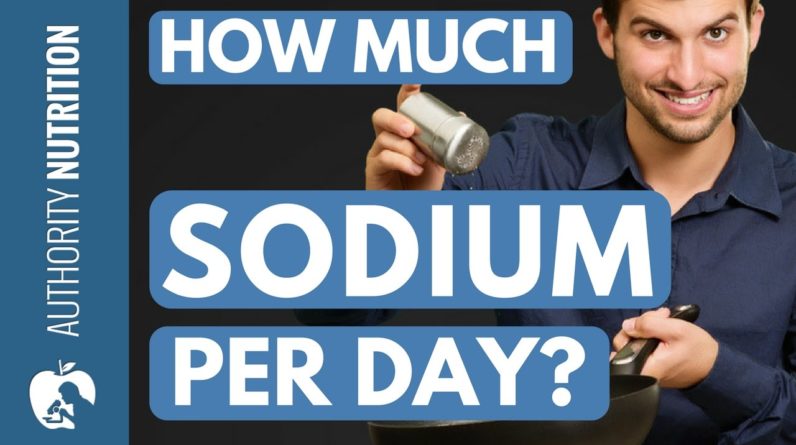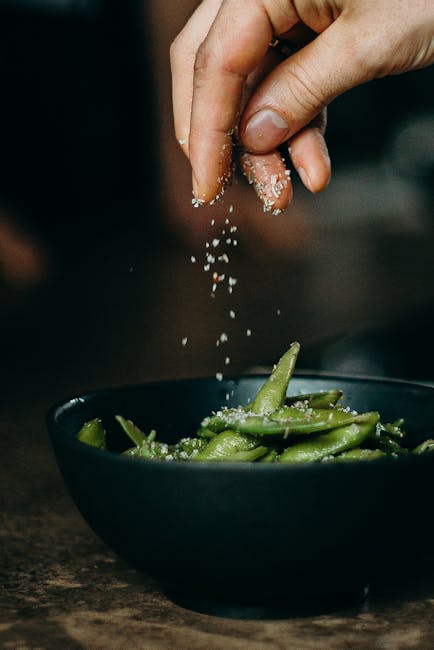
– Sodium is one of those
things that everyone knows is unhealthy if we eat too much of it. At least, that's what we've been told by major health organizations
and government guidelines, but perhaps we should
take those recommendations with a pitch of salt. (chiming) Okay, now I've got that
terrible pun out of the way, let's quickly clarify some
facts that everyone agrees upon. Sodium is a crucial
electrolyte in the body and many foods contain
small amounts naturally, but most of the sodium in
the diet comes from salt. Okay, so salt is made up of 40% sodium and 60% chloride, by weight. So, essentially when we're
talking about sodium, it also refers to salt. Sodium in the bloodstream does raise blood pressure slightly. High blood pressure, or
hypertension, is a major risk factor for heart disease, stroke
and other serious conditions. In fact, correcting high blood
pressure is the single-most important thing you can do to improve your cardiovascular
health and lifespan.
Okay, so we've established
that the sodium we eat largely comes from salt and
that too much sodium or salt can increase blood pressure
which is really bad. So then, should we all just try to eat as little sodium as possible? Well, no, not exactly. A recent cross-sectional
French study using data from 8,670 volunteers
concluded that, overall, that salt intake was not
associated with blood pressure in either males or females. In fact, high weight was the
biggest contributing factor. And, in a massive Cochrane
Review of 34 previous studies, salt restriction was shown
to reduce blood pressure by only one to two
points in healthy people, which is really unremarkable if your blood pressure is not high. In saying that, restriction was found to reduce blood pressure by
about three to five points in those with existing high
blood pressure or hypertension, which, theoretically, will be beneficial for cardiovascular health. I say theoretically, because
another Cochrane Review of seven randomized control trials, which is the gold standard of research, found no effective salt restriction on actually preventing
cardiovascular disease or death, which is, of course, the actual outcomes
we're trying to minimize. When we want to minimize
high blood pressure, or lower blood pressure, the
reason is because we want to prevent cardiovascular
disease or death.
Now, I note that only
two of the seven studies in this particular review were in people with high blood pressure, though. Basically, it appears that
for otherwise healthy people, your sodium intake doesn't
raise blood pressure and if it does, it's very modest. But, for those with existing
high blood pressure, it's probably beneficial to
reduce your sodium intake. Now, that change won't
be huge, necessarily, but it is enough to warrant
some dietary changes. So how much sodium is optimal each day? A lot less than what we
currently eat, actually. The average American eats 5,000
milligrams of sodium per day or about two teaspoons per day and this is just unnaturally high. General public health recommendations are for the average adult
to limit sodium intake to less than 2,300 milligrams or about one teaspoon of salt per day. This is not based on any good evidence regarding blood pressure,
though, as I've discussed, but a really high intake is associated with other health issues and overeating calories, in general. If you have high blood
pressure, chronic kidney disease or diabetes, you're advised
to limit intake even further, down to 1,500 milligrams a day, or less, equal to less than 3/4
of a teaspoon of salt.

This is a good idea, just to be safe. All those number make it
sound really complicated, but it doesn't have to be
because 75% of all the sodium that we eat comes from
processed packaged foods and junk foods, rather than salt that we add ourselves at the table. So, simply cutting down or, better yet, eliminating processed foods
from your regular diet will get you within those guidelines. In other words, and you've
probably heard this before, but just eat real whole foods and add a touch of salt if it needs it. Thanks for watching. If you haven't subscribed to the Authority
Nutrition YouTube Channel, be sure to click that big
red button below the video so you can get notified when all our new videos are published.
(upbeat pop music).







